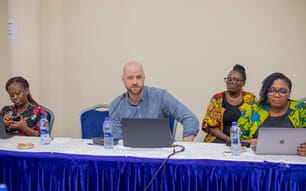Previously, Mr Moya (pictured) acted as head of BAP’s expansion team in Latin America and Europe on a part-time basis. He will be based in BAP’s office in Lynnwood, Washington, USA.
Mr Moya has more than 20 years of professional experience managing integrated aquaculture operations. He has worked in Spain, Mexico, Mozambique, Madagascar, Peru, Honduras, Panama and Canada.
GAA also announced in December that Bill and Betty More will be retiring from their current roles as BAP director and BAP programme manager, respectively, at the end of 2015. They work out of BAP’s office in Crystal River, Florida, USA. They will work with Mr Moya over the coming months to ensure a seamless transition.
Bill and Betty More have been instrumental in the success of the BAP programme over the past 12 years, since the formation of BAP’s predecessor, the Aquaculture Certification Council. Since the adoption of the first set of BAP standards, for shrimp farms, in 2003, the BAP programme has grown to 358 BAP-certified farms, 267 BAP-certified processing plants, 30 BAP-certified hatcheries and 26 BAP-certified feed mills.
The BAP program's success is a direct result of their tireless work and dedication to responsible aquaculture and program integrity.
“Bill and Betty More are two very special people. They’re two of the most respected people in the aquaculture community,” said GAA Executive Director Wally Stevens.
“GAA is a collection of dedicated, professional, experienced men and women of the highest integrity, who are devoted to aquaculture’s growth. Betty and Bill check all of those boxes, and then some. While they will step away from their day-to-day involvement with the BAP division at the end of 2015, they will still be available to GAA and the Responsible Aquaculture Foundation on the larger issues facing aquaculture’s growth.”


